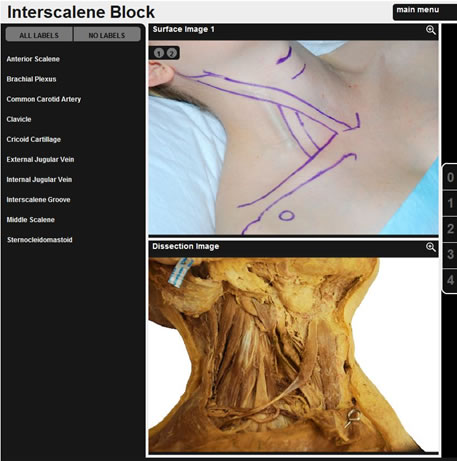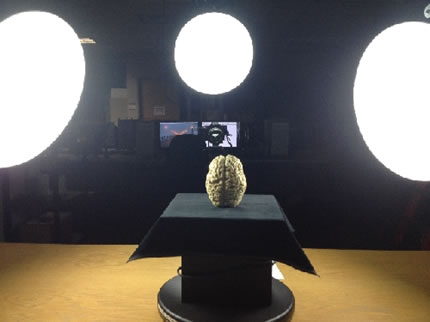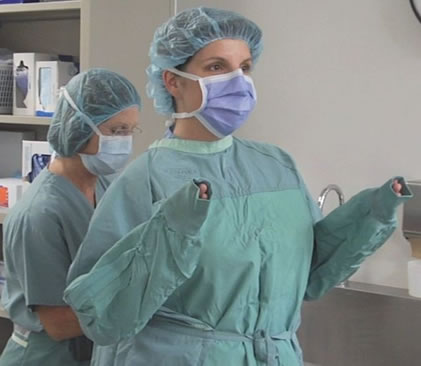Opportunity
The Instructional Technology Resources Centre (ITRC), part of Information Technology Services at Western University, plays multiple roles in supporting faculty to integrate technology into their courses, from assisting in the use of technologies, to preparing the online content in collaboration with the instructors, providing training and documentation, and supporting system and software upgrades. With the 2012 introduction of Sakai, the new learning management system (LMS), ITRC has worked with professors in adapting their content to Sakai and the expanded capabilities it provides.
The ITRC offers drop-in and phone support, as well as accepting project proposals year-round for the development of computer-based instructional materials. There is no charge for academic instructional projects. Projects are accepted when they meet some or all of the following criteria:
- Clearly defined educational objectives
- Defined need for the integration of technology to achieve educational objectives
- Clearly indicated effective use of technology
- Defined process to evaluate the educational objectives
- Implementation within a proposed timeline
- Development of the project within the resources available
- Project applicants are available to work with the ITRC student consultant
- Number of students potentially benefitting from the project
Project proposals are reviewed, accepted, and assigned to appropriate staff in the ITRC.
Innovation
The ITRC consulting services are provided by undergraduate students, with technological expertise across a wide range of media, delivery modes, and educational technology. About 20 student-consultants work full-time over the summer and part-time during the academic year, depending on their availability.
Each student has a basic set of technological skills, supplemented by some areas of specialization. They come from different faculties, and are assigned to work with the professors throughout the development process according to their technical expertise and availability. The student-consultants work collaboratively with each other and the professional staff in the ITRC. The Centre provides access to sophisticated technology for creative applications.
The examples below indicate the variety of technological applications used in recent course development projects.
Music Distance Education Course: The online course hasd readings and music files available to the students every week, supplemented by discussion questions. The student input to the discussions was anonymous; the instructor’s comments were identified. Videos from Films on Demand were linked directly to the LMS to make access easier. The mid-term and final exams were done online: the students could log in over a 2½-hour period and have 1 hour and 35 minutes to complete the exam.
Earth Sciences: The course included 12 quizzes that can be done at any time, but all are due in early December. The questions were multiple choice, matching, fill-in blanks; the LMS automatically marks them and enters the results in the grade book.
Clinical Skills Lab: The site was designed to provide students with support material for supplementary learning and exercises, with both self-quizzes that provide feedback on errors and links to additional readings and video material. Some video material was filmed and editted for the site by the ITRC.
Digital Atlas of Nerves: Designed for anesthesia courses, the resource offers visual presentations such as CT scans, ultrasound, dissection images, and injection videos.

From The Digital Atlas of Nerves
Conducting Techniques: Short videos were created to illustrate various conducting techniques, allowing students to view as often as necessary and move the images in slow motion for better comprehension.
Human Anatomy: Online students are able to have the equivalent experience of students in the lab. Interactive 3D visuals of the brain were created using the specimens from the lab. The ITRC set up a photo shoot that involved 72 photos of each of 20 specimens, and then undertook the creation of the website on which the images could be dissected, re-created, and manipulated in the same ways as the live specimens.

Photo shoot for Human Anatomy
Virtual SlideBox: Online students in a Histology course in the Department of Anatomy and Cell Biology are provided with a virtual SlideBox, containing the same 140 slides that students would examine in the face-to-face laboratory. The ITRC consultants designed and developed the web site so that the slides can be expanded and manipulated as they would be under a microscope. The SlideBox is also available to the face-to-face students and is available online as an open educational resource.
Cranial Nerve Project: Using medical images already available, a learning tool was created for students in Anatomy and Cell Biology using voice-over, 3D models, and print explanations matched to each image. The technological and pedagogical model used for creating this resource can be applied to any learning tool in which students are required to identify parts or components of images.
Flowcharter: Students can visualize and represent the variables and conditions in complex algorithms by creating their own flow charts and learn through running examples provided by their instructor. The program was created for a professor in the School of Engineering.
Scrubbing, Gowning and Gloving Techniques: A short video, accompanied by learning objectives, demonstrates the techniques used in hospitals and other sterile environments.

From Scrubbing, Gowning, and Gloving Techniques
Strategy Bytes: This tool was created for the Student Development Centre to help students with study and assignment strategies so they can maintain and improve their academic performance.
Virtual Biology Lab: An interactive animation was developed to demonstrate an experiment that takes 4 hours in the lab, as well as requiring a very controlled environment, including darkness. Students watch the simulation in a few minutes, repeat as often as wanted, and link the visuals to their written instructions.
A number of these tools are featured on YouTube as examples of work done in the ITRC. To encourage professors at Western to make use of the Centre, the videos present segments of the learning tools to demonstrate the pedagogical structure and design.
In Summer 2012, student-consultants and ITRC staff ran training sessions to support the transfer to Sakai, using sample lesson plans and applications of tools.
Outcomes and Benefits
The consultants in the ITRC are far more skilled with the adoption of instructional technologies for teaching and learning than most professors with whom they work. The team approach matches the professor’s vision, content and pedagogical expertise with the consultant’s technological and visual skills. The students take the time to build the tools, construct the quizzes, and create or transfer the visuals and the professional staff in the ITRC offers pedagogical advice and support.
With 20 student consultants, there is a wide range of capacity, as well as flexibility and internal collaboration that allows the ITRC to support whatever teaching requirements are brought forward. The students are also ready to learn and expand their capabilities, using the professional level equipment that supports high-level production.
Challenges and Enhancements
The challenge is in bringing the professors to the idea of technology-enabled learning and how it can benefit their teaching and students’ learning, if developed and used appropriately. Attracting increasing numbers of instructors to the ITRC is the ongoing goal.
Potential
An eight-person committee is currently considering the e-learning future of Western University and its recommendations will impact the ITRC.
Staff members are very willing to share their experiences and what they have learned with their colleagues in post-secondary education.
For Further Information
Merran Neville
Instructional Support
Instructional Technology Resource Centre
Information Technology Services
Western University
[email protected]
Jane Winkler
Instructional Support
Instructional Support Team
Information Technology Services
Western University


